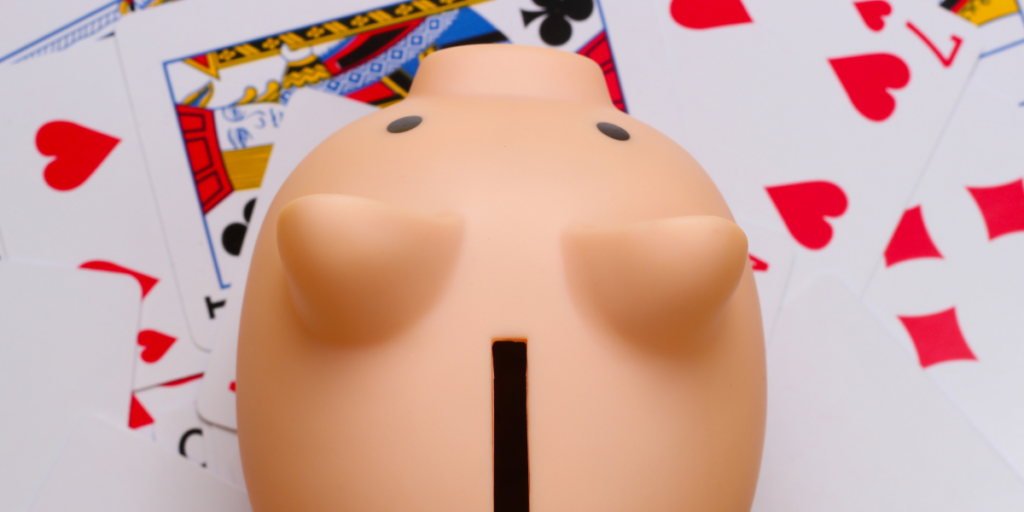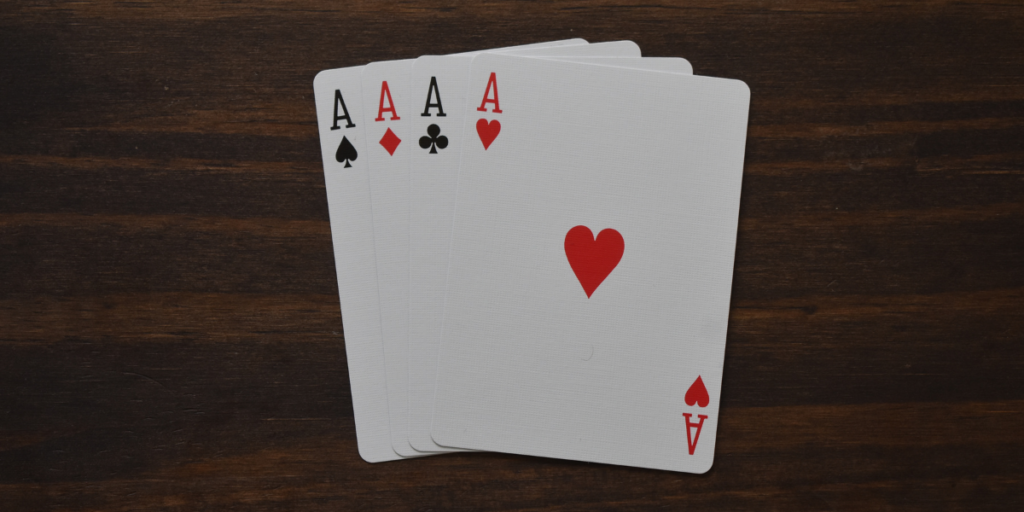It can sometimes feel a little mundane when you reach for your deck of cards on game night and begin playing the same old games that everyone is familiar with. This is why whenever I host an evening with my friends and family, I like to introduce them to as many different types of card games as I can.
Some games I like to teach people about are Old Maid, Red Dog, and Sergeant Major. We have a few younger crew members that often join us for our games evening, so I like to try and keep things mixed up regarding ability and game type.
This guide will cover 13 different types of card games that I’ve personally played with different groups of friends. If you’re looking for something different, then this guide will help.
What Are The Different Kinds of Card Games?
When you think of different types of card games, you probably think about games for two players, groups, or casino games.
However, there are actually many different kinds of card games that fall under specific categories, such as fishing games, matching games, or trick-taking games.
So during this guide, I will list the different types of games and tell you about a few games that fall under each category. I will also briefly describe how each type of game is played and how to win.
1. Staking Games

Staking games are primarily focused on good luck, with minimal skills involved. Most of the time, they include betting on the next card to be turned up. One good example of a staking game is Faro.
This game dates back to the 17th century and still plays around significant casinos today. The aim of the game is to win more bets than your opponents. This game is slightly unusual in that the ace is the low card. Meaning the king is the highest ranking.
2. Collectible Card Games
These games are currently a super popular choice with younger teenagers and pre-teens. They consist of collectible cards you obtain, trade, and sometimes battle.
Currently, one of the most popular forms of this game is Pokemon, which I personally played back when I was a youth, though I think it may have modernized quite a lot since then.
Another example of collectible card games is Yu-Gi-Oh, which is another 90s game that is similar to Pokemon but involves a slightly different set of rules.
3. Card Exchanging Games

These games usually involve each player having an individual hand of cards, which they must exchange with other players to form a required set. If you cannot trade cards with anyone else at the table, you will usually take or exchange cards using a stockpile.
An excellent example of a card-exchanging game is a game called cuckoo group, in which each player is given several lives and must place a stake in the pot.
As the play goes on, people who have low hands lose lives. At the end of the game, whoever has lives remaining, wins and takes the entire pot.
4. Catch and Collect Card Games
This is a category of games that is great to play with the kids because it’s one of the easiest groups of card games to understand. They are also an excellent way to introduce children to card games for the first time.
One example of a catch-and-collect card game is a game called War. This is a simple, usually two-player card game involving a single deck of cards divided between players before revealing their top card.
Whichever player has the highest card takes their opponent’s card and adds it to their deck. The winner is the person who collects all the cards by the end of the game.
5. Trick-Taking Card Games

I’ve always loved all card games and learning about new ones. However, I used to find one group of games quite daunting: trick-taking card games. Mainly because I did not understand the terminology.
However, now that I have plenty of card-playing experience, I know that trick-taking card games are great fun once you understand the rules.
Trick-taking basically means that players have a hand that they must use to play tricks (or cards) while sometimes placing bets.
You may have heard of one popular game that falls under the trick-taking category, Bridge. The game aims to collect as many tricks as possible or get as many tricks as was set at the beginning of the game. You can check out our handy guide to learn all the rules and how to play Bridge.
6. Melding Card Games
You will have probably heard of the card game Rummy. If so, you might already know that this falls under what we call melding card games.
Games like this require players to match their cards with other players to form different variations, which can be discarded. The game aims to discard all your cards before your opponents, and the first person to get rid of all your cards is the winner.
7. Banking Card Games

This is another game that is suitable for younger players or those who are slightly more inexperienced. This is because it heavily relies on good luck.
In these kinds of card games, instead of having a dealer, you have a banker, and players must take bets on getting better cards each time in order to win.
Like Roulette, this is quite a typical casino game. So if you’re new to the scene, these banking games are an excellent place to start.
8. Layout Card Games
When I first started playing card games in the 90s as a child, the first ones I learned to play were pairs and solitaire. These are known as layout card games because they involve lying the whole deck of cards on the table.
There are hundreds of varieties of these games. Still, most involve the same theory of arranging the cards into a specific order and discarding cards throughout the game.
9. Shedding Card Games

You can probably guess what I mean when I say shedding card games. This basically means to get rid of cards before the rest of the players. So, for example, card games like Uno are shedding games.
In most cases of these games, the person who has cards left at the end of the game is the loser.
Some of them require speed and quick-thinking actions to be able to shed your cards before your opponents. Crazy 8s is another excellent example.
10. Vying Card Games
This might be a term you’re unfamiliar with if you’re new to card playing or aren’t used to the technical game-playing terms.
Vying card games are where opponents compete against each other by comparing their hands to find out who holds the highest-ranking cards.
Some people might call these comparison card games, and one game that falls under this category that you will be familiar with is Poker, which you can learn how to play with one of our handy Poker guides.
11. Matching Card Games

One of my absolute favorite games, which my grandpa taught me to play as a child, is Go Fish. As you would presume by the name, this is not a fishing game, which I will tell you all about shortly.
Matching games have a similar set of rules to fishing games, which involve players having a hand of cards and taking turns asking other players for cards that add to their sequence so they can discard their cards.
In Go Fish, If you are asked for a card at any given time, you must give it up. If you don’t have the card you’re being asked for, the requester must continue to ask other players or take a card from the stockpile.
Other examples of matching games include Canasta.
12. Fishing Games
As I mentioned previously, fishing games are a group of games on their own and are not actually related to the famous family card game, Go Fish.
However, fishing games are still popular as card games, and there are wide varieties to play.
One fishing game is the Italian card game, Briscola. For this, each player has a hand of cards. Any leftover cards are placed in the center of the playing area.
Then the players take turns playing a card. If it matches the card upturned in the center, you take that card and add it to your deck.
If it doesn’t match, it gets added to a layout, and the next person takes their turn. Ultimately, the person who played the highest trump is the winner.
13. Point Trick Card Games
Point trick card games are similar to trick-taking card games, but each card is worth a different point value. To win these games, you need to accumulate points and have the most points at the end of the game.
There are also negative point trick games, in which you need to do the opposite and try not to accumulate points because, in the end, the loser is the person with the most points.
My favorite example of a point trick card game is the Fox in the Forest, but that’s because I’m a sucker for themed games.
Conclusion
As you can see, playing card games is a lot more than your simple poker and solitaire-type games, and there are actually a lot of different categories.
There are also other categories of games, known as multi-genre, which are technically hybrids of other games that have been mixed together over time to create a whole new game.
For example, when I spoke about Go Fish being a matching game, technically, you could also class this as a trick-taking game as you’re collecting from other players. This same rule goes for many card games out there.
So my point here is just because one game falls into a specific genre, other variations of it may mean that it’s a different type of game entirely.
I think multi-genre card games are one of the things I love about playing cards. There are so many possibilities and variations that you can always find something new to learn or gain new skills.
The main reason for putting these card games into specific categories is because it helps to understand the game’s main rules. Still, in reality, one game could fall into two or even three different categories.
So, what type will you go for the next time you want to play a card game with your friends and family? Matching, fishing, or maybe trick-taking?

